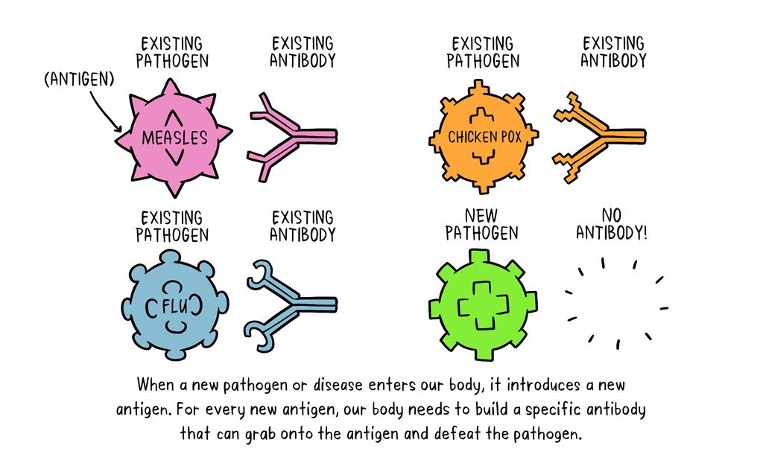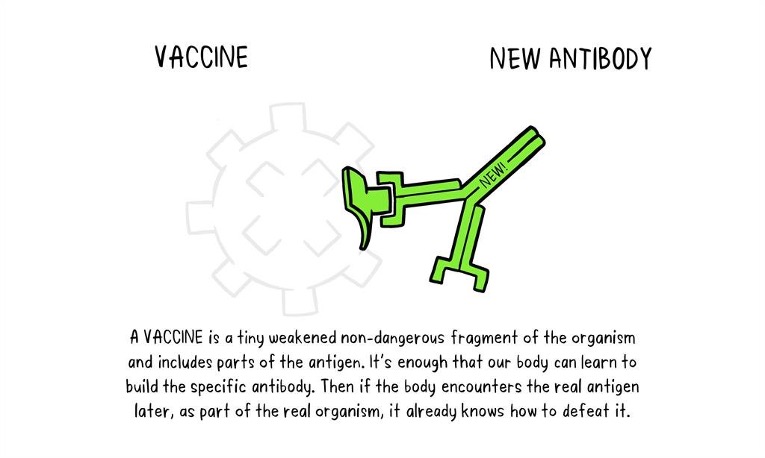Wash hands frequently for 20 seconds with soap or sanitise with 70% alcohol
Cover your mouth and nose = wear face protection
Avoid contact with others - keep your social distance of at least 1,5 meters
Go to the clinic or see your doctor if you are feeling COVID-19 symptoms
A virus is made up of several subparts. The subpart of a virus that causes the formation of antibodies is called an antigen. The antibodies produced in response to the virus’ antigen are an important part of the immune system. You can consider antibodies as the soldiers in your body’s defence system. When the human body is exposed to an antigen for the first time, it takes time for the immune system to respond and produce antibodies specific to that antigen. In the meantime, the person is susceptible to becoming ill.
Antibodies to one virus generally don’t protect against another virus except when two pathogens are very similar to each other, like cousins. Once the body produces antibodies in its primary response to an antigen, it also creates antibody-producing memory cells, which remain alive even after the pathogen is defeated by the antibodies. If the body is exposed to the same pathogen more than once, the antibody response is much faster and more effective than the first time around because the memory cells are at the ready to pump out antibodies against that antigen.
This means that if the person is exposed to the dangerous pathogen in the future, their immune system will be able to respond immediately, protecting against disease.



